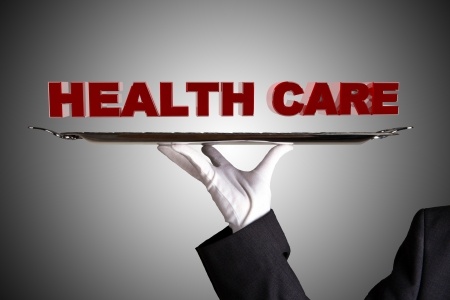The “debate” (read: ranting) about healthcare policy on my media feeds is – there is no other way to put this – mostly bullshit. At best, it’s magical thinking. At worst, it’s a cold-hearted, callous disregard for those who can least afford the “luxury” of participating in the most technologically advanced heath care delivery system in the world.
(Note I didn’t say “the best,” but that’s a different post).
Let’s get this one thing straight at the outset: this post isn’t about democracy and freedom and “making America great again.” And it’s only partly about sick people who are poor getting sicker, and dying. Our system largely prevents that from happening, albeit not that well sometimes.
It’s about who’s going to pay for healthcare for those who are about to lose their coverage. No, not insurers, not employers, not politicians, and sure as hell not the wealthy. It’s you.
Who knew healthcare policy was so complicated?
Who knew healthcare policy was complicated? Basically anyone who knows even the least bit about it.
Apparently that did not include our President. But I digress.
The realities of healthcare policy aren’t an easy topic for most people. I get that. Hell, I’m pretty immersed in it and I’m something of a policy geek, and I really have to work at it. And I probably only understand a small fraction.
But this is important stuff. And since we are about to change course to a direction that I believe will be much, much worse for all of us, I’m making good on my threat to write a series of posts about health care. I hope you’ll read and participate in a genuine debate.
Reverse Robin Hoods
This from the Wall Street Journal, Saturday morning:
“The House Republican health-care plan picked up an important endorsement on Friday from leaders of a large bloc of conservative lawmakers, after President Donal Trump backed more stringent curbs on funding for Medicaid, as well as work requirements for its low-income beneficiaries.”
So, if you’ll cut Medicaid even more, they’ll vote for this bill. After all, that doesn’t make any difference in their life. Let the states take care of their own. Huh.
Meanwhile, a few pages deeper in the section, there is a story about one of the tax cuts embedded in the new Republican healthcare plan. It’s a repeal of the 3.8% levy known as the net investment tax. The cut will reduce federal revenue by $157.6 billion over a decade, most of which will go back to the top 1% of households. Mind you, in 2016 those in the top 10% of income in the US owned 75% of the nation’s total wealth, a disproportionate share of which is in turn owned by the top 1%. Worldwide, soon the richest 1% will own more than 50% of the world’s total wealth.
But, if you’ll cut Medicaid even more, they’ll vote for this bill. After all, not only doesn’t it make a difference in their life, things will be better for them and those like them. Let the states take care of their own. Or not. Huh.
The American Health Care Act is a massive transfer of wealth from the poor to the rich. This isn’t the only tax cut in the bill, just the one that stands to have the most positive impact for President Trump’s personal finances. That’s in the WSJ article too.
So what’s the big deal about Medicaid?
A significant portion of those Republican governors that took advantage of Medicaid expansion under the ACA are opposed to contracting Medicaid. They recognized that the proposed block grants will underfund Medicaid, and that millions of poor people in their states will once again be without health coverage.
But what’s the big deal? I mean, shouldn’t the states take care of their own? Don’t they know best how to address the problems of health care in their states? That’s the argument.
Here’s where I get flabbergasted that so few seem to understand the flaw in that reasoning. To whit: someone is going to take care of those people who are poor, and have no coverage. If they don’t have Medicaid, then we will go back to taking care of them through indigent care, mostly in emergency departments. Which is the very most expensive, very least efficient way to deliver health care.
Who’s going to pay?
Since hospitals are required to provide indigent care, they take on the burden. Temporarily. Then they pass the cost on to you by charging you, or your private insurer, more. If you’re lucky enough to have insurance, your policy cost goes up to cover it. Either your out-of-pocket cost goes up, or your employer pays more. Or both. Which leaves less profit that gets funneled to you.
If we stop paying for Medicaid through the Federal government, we’ll pay less in federal taxes. Mostly if you’re rich, but let’s say for argument’s sake that everyone got a federal tax cut. Where is the money going to come from at the state level? Yep, taxes. Assuming that we don’t just start allowing sick people to die if they happen to be poor, the part of indigent care that isn’t paid for by you in the form of higher costs, will be paid by state and local taxes. Who pays the largest share of those? Yep. You again..
Double bubble, toil and trouble
It’s not that the ACA wasn’t flawed – it was, deeply, made worse when we didn’t fully fund it or embrace it. But what we are about to replace it with is worse, by far. Somehow a lot of people seem to think it will be better, and that somehow the rules of economics don’t apply to a Republican-backed plan.
But that’s all witchcraft, smoke & mirrors, and magical thinking. More precisely, it’s sleight of hand – if I keep you watching the ranting tweets of the man in the Oval Office, and I keep you listening to the alt-fact that it’s the evil Obama who created all that’s wrong with health care, then you won’t notice when my other hand picks your pocket and empties your wallet.
The rules of economics say that someone is going to pay for all that care. And if it isn’t government, it’s you.
Dr Les Kertay




